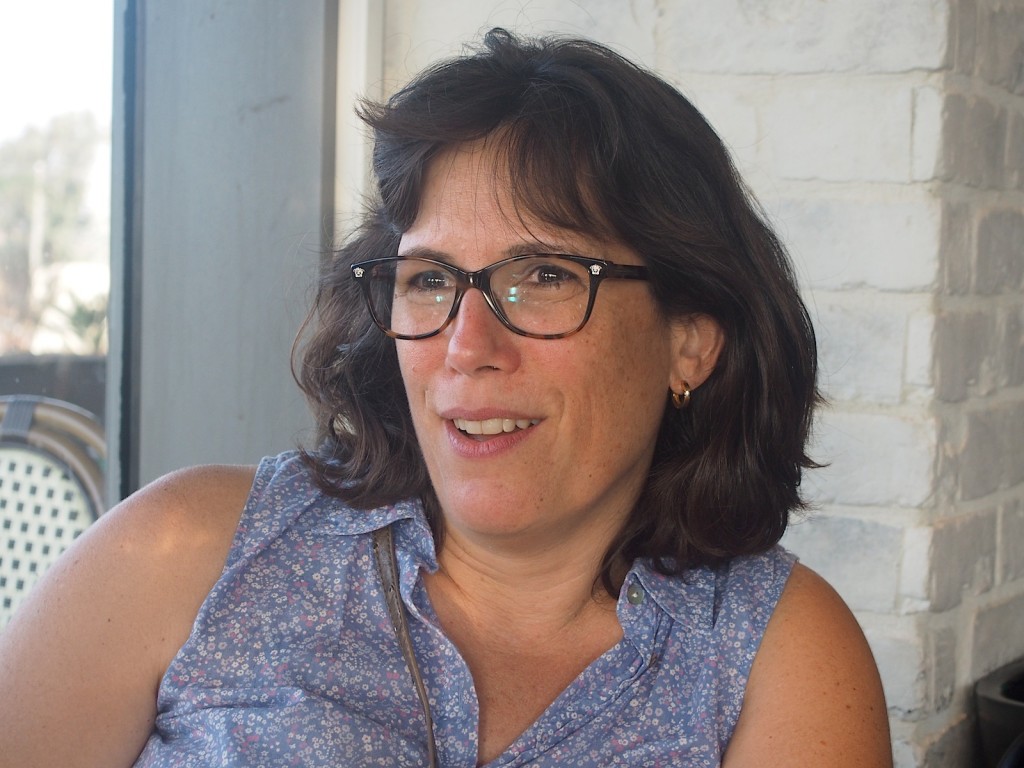Sometimes when I’m on the road visiting winemakers, tasting their wines and trying to make sense of the world into which those people and products fit I feel like an anthropologist. Every good anthropologist will tell you that in order to try and understand a foreign culture you need not only to be continuously observant and as aware as possible of the fact that other people see the world differently from yourself (and therefore act differently), but that you also need at least one good informant. An informant is a member of that foreign culture you’re studying, but she or he must be able to communicate easily with you. The help of such a person enormously increases the degree to which you can make sense of what you observe and avoid twisting it to fit in with your own way of seeing the world. Donna Gershowitz of Even Yehuda, a short drive north of Tel Aviv, was my Israel informant although she would probably say that all she did was play the tour guide for a few days.
Donna was indeed an excellent tour guide and spent quite a few days introducing me to various parts of Tel Aviv, the centre of contemporary Israel that is sometimes referred to by Israelis as “Sin City” and even “Sodom and Gomorrah”, and a number of important historical sites ranging from the Roman to the Crusader periods. Of course, neither of these sides of the country is sealed off from the other, there was some important history (roughly the half century prior to the foundation of Israel in 1948) in the Tel Aviv area, and those ancient sites were surrounded by contemporary Israel, in the foundation myth of which they play an important role. Even when she wasn’t intending to do so, Donna’s comments told me a great deal about the way this small but complex country and its extremely diverse people tick.
“That’s Israel!” she would say when something surprising (to me) or frustrating (for us) happened, and rather quickly I found myself saying those words alternately in wonder and annoyance. She also put me right on a couple of things that I failed to understand, because this is my first time here and “discovering” a country as vibrant and dynamic as this generates a certain euphoria that blinds you to certain negative things. For example, although I didn’t miss the arrogance of some Israelis (particularly men in the 30-50 age group), I failed to pick up on the cynical side of some Israelis.
Donna, who is a lawyer and emigrated to Israel from New York many years ago, also likes wine and took the role of driver for a bunch of my appointments with the leading Israeli winemakers. She found this experience much more interesting than she expected, and it opened her eyes to just how many-sided the wine industry is, even in Israel with its mere 5,500 hectares / 13,600 acres of vineyards. Although more a red wine drinker, during those days she figured out that there is a type of dry white wine that suits her very well (aromatic but not loud, medium-bodied with crisp acidity). I hope that in a small way I was able to give something back to her in this. How I can properly say thank you for her hospitality during much of my visit is another matter. That will take some thinking out. I’ll begin working on that during the plane and train to Berlin tomorrow, when I also hope to post a final episode of this Israel Riesling Diary.


![120114_riesling_global_RZ [1600x1200]](http://www.stuartpigott.de/wp-content/uploads/2014/10/120114_riesling_global_RZ-1600x120011.jpg)